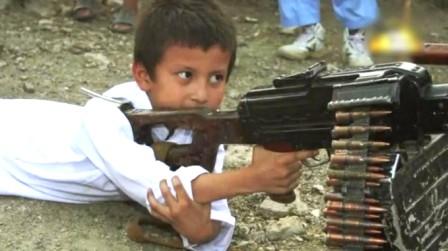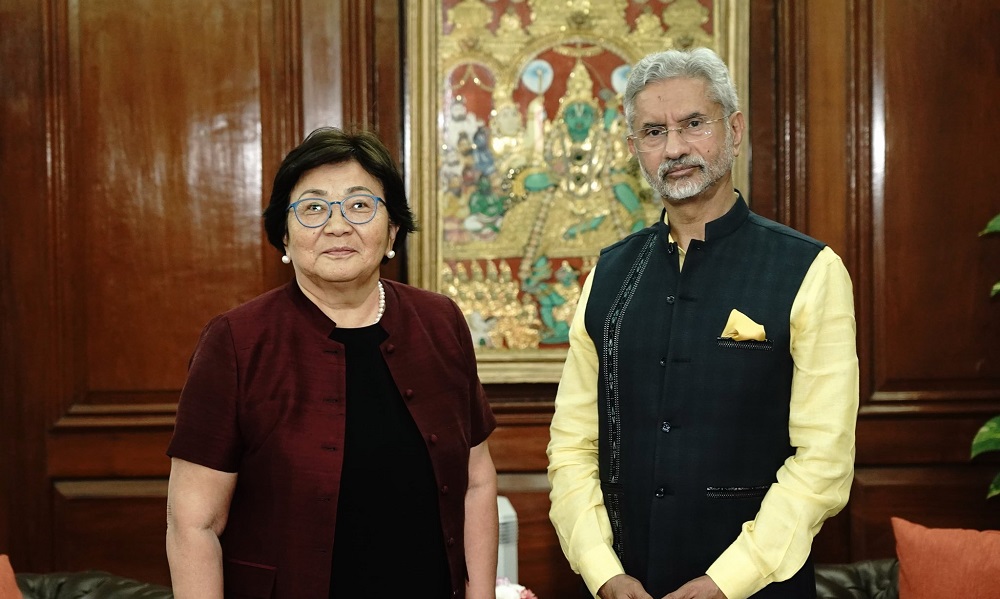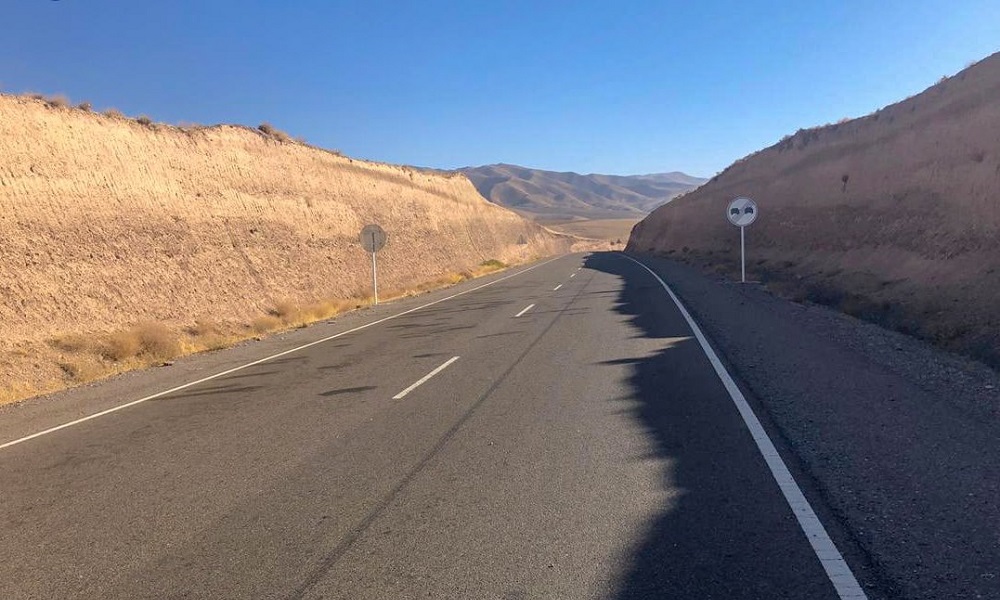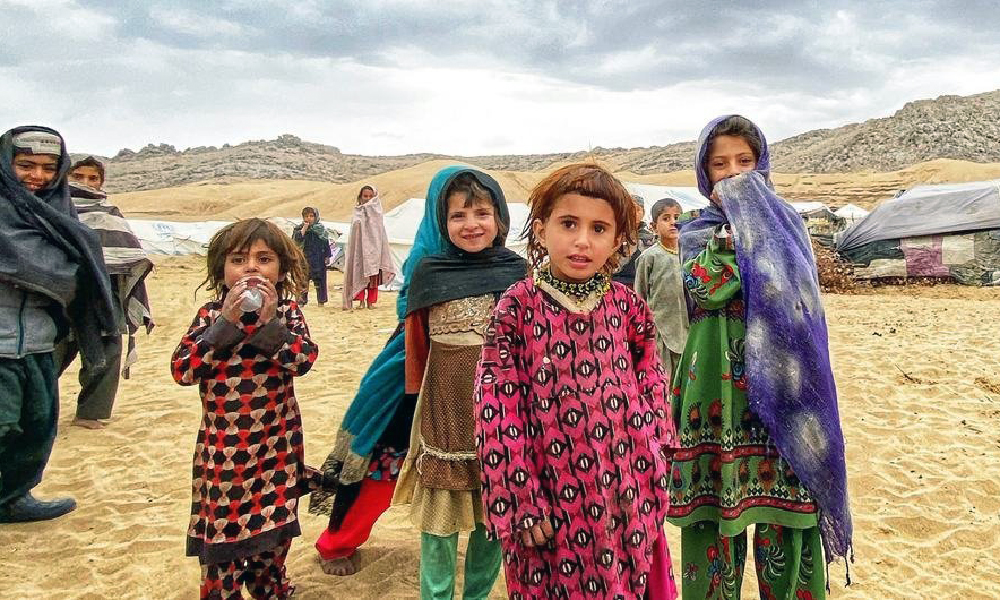Latest News
Afghanistan Reiterates Commitment to End Recruitment of Using of Children in ANSF Ranks

During a mission by Leila Zerrougui, the Special Representative of the Secretary-General for Children and Armed Conflict, the Afghan Government reiterated its commitment to fully implement its Action Plan to end and prevent the recruitment and use of children in the national security forces.
“The political will and progress I have seen on the ground are encouraging. The Government’s commitment will be instrumental to turn the page on the recruitment and use of children in the Afghan National Security Forces (ANSF),” declared the Special Representative.
Zerrougui travelled to Afghanistan from 13 to 17 February to assess the situation of children affected by the armed conflict and to engage with authorities and partners on the protection of boys and girls. She met with President Ghani, Chief Executive Abdullah, Vice President Danish, and key ministers, as well as with the Afghan Independent Human Rights Commission, NATO, the diplomatic community and UN and NGO partners.
The Special Representative commended the launch of national age assessment guidelines as well as the Presidential decree criminalizing the recruitment and use of children in the ANSF, and stressed that effective implementation and enforcement of these tools are critical to prevent recruitment and use. Zerrougui recognized progress made to end underage recruitment in the Afghan National Police (ANP) and Afghan National Army (ANA), but raised concern regarding the lack of oversight of recruitment processes for the Afghan Local Police (ALP). Further, noting the large increase in the number of UN verified cases of child recruitment in 2015 – mostly by the Taliban and other armed groups – she called for a general prohibition of underage recruitment and use.
In Herat, Zerrougui visited a child protection unit located in the ANP recruitment centre and heard about its positive impact to prevent underage recruitment. Welcoming the recent establishment of two new child protection units in Mazar-e-Sharif and Jalalabad, the Special Representative called for support to set up such units within ANP recruitment centres across the country’s 34 provinces.
Ahead of key donor conferences this year, she urged the Government and its international partners to dedicate resources to support the full implementation of the Action Plan, including reintegration programmes, and to address root causes such as lack of opportunities for young people.
Rising child casualties
In 2015, an average of 53 children were killed or injured every week, the highest number since 2009, when the UN began systematically documenting casualties. The majority of child casualties was attributed to ground engagement between parties to conflict. There was also an increase in deaths and injuries attributed to airstrikes by Afghan and international forces.
“The current security situation is creating great challenges to protect children,” said the Special Representative. “I call on all parties to respect international humanitarian law and to take all precautions to reduce the impact of conflict on children.”
Health and education
During her meetings with the authorities, the Special Representative highlighted the importance of protecting schools and hospitals. She noted that schools, particularly girl schools, continue to close their doors due to insecurity and direct threats by non-state armed groups.
“I commend the Government for signing the Safe Schools Declaration. In the context of the challenges for access to education in Afghanistan, we must work together to ensure that schools are protected from attack and military use. The next generation could be compromised if we cannot protect children’s rights to health and education,” said Leila Zerrougui.
Protection of children
While in Herat, the Special Representative visited a juvenile rehabilitation center, where she met boys and girls held in detention.
The Special Representative reminded authorities that children who have been associated with non-state armed groups should be treated primarily as victims and in accordance with juvenile justice standards. She raised concerns regarding the detention of children on national security-related charges in Parwan, a high security facility for adults.
“This is not a place for children. I raised this issue with the authorities. There should be no debate about the fact that juvenile justice standards should apply to these children,” said Leila Zerrougui.
She also discussed with authorities the practice of bachabazi, or dancing boys, and is looking forward to the criminalization of this practice in forthcoming legislation.
The Special Representative concluded that strengthening the rule of law and addressing impunity are not only key elements to the success of the Action Plan to end and prevent the recruitment of children, they are also essential to improve the protection of children in Afghanistan.

Latest News
UN envoy meets Indian foreign minister to discuss Afghanistan

Roza Otunbayeva, the UN Secretary General’s Special Representative for Afghanistan, met with the Indian Foreign Minister Subrahmanyam Jaishankar in New Delhi and discussed issues related to Afghanistan, it was announced on Thursday.
During the meeting, Otunbayeva thanked India for “its critical humanitarian support and longstanding friendship for the Afghan people” and discussed the importance of regional and international cooperation to address prevailing challenges in Afghanistan, UNAMA said on X.
Jaishankar also said on X that the sides exchanged views on the current situation in Afghanistan.
“Underlined that India has provided wheat, medicines, pesticides and school supplies. Appreciate the role of UN agencies as partners in these endeavors,” he said.
Latest News
Traffic accident leaves one dead, four injured in Herat

Local officials in Herat say one person was killed and four others injured due to a traffic accident in Karukh district of the province.
The accident took place on Thursday night at 8:pm.
The injured individuals have been taken to Herat’s regional hospital by the personnel of Karukh district police headquarters, local officials said.
Latest News
250,000 Afghan children need homes, food, education after returning from Pakistan

In the wake of an announcement by Pakistan that it intends to start Phase Two of deportations of Afghans, Save the Children said Thursday that almost a quarter of a million Afghan children need proper homes, food, and access to education after returning from Pakistan in the past seven months.
In a statement issued by the organization, Save the Children said more than 520,000 Afghans have returned from Pakistan since September last year, after Pakistan said all undocumented foreigners must leave the country voluntarily or face deportation.
Nearly half of all the returnees are children.
A survey by Save the Children of families who have returned to Afghanistan – and the communities who are hosting them – found that nearly all (99%) do not have enough food for the next one to two months.
About three-quarters of returnees and families in host communities reduced portion sizes or restricted the food consumption of adults so small children could eat.
About 40% of returnees and host families surveyed had to borrow food or rely on friends and relatives for at least three days a week – with 13% of returnees and 9% of host families saying they had to get food from others every day.
Almost 8 million children in Afghanistan – or one in three – are facing crisis levels of hunger.
Nearly one in six families live in tents, according to the survey, with most returnees having little or no means to support themselves.
Only a third had managed to bring assets back with them from Pakistan.
Nearly half (47%) said there were no jobs available in Afghanistan, with 81% saying that they do not have any skills that could lead to employment.
Almost two thirds (65%) of children who have returned to Afghanistan have not been enrolled in school. The majority (85%) told Save the Children that they don’t have the necessary documents to register and enroll in school.
In Pakistan, more than two thirds of these children had been attending school.
Arshad Malik, Country Director for Save the Children in Afghanistan, said: “Families are returning to Afghanistan with virtually nothing. Most are relying on relatives or friends to support them – and these communities already have little to support themselves.
“The return of so many people is creating an additional strain on already overstretched resources. Children need support and stability. Many undocumented Afghan children were born in Pakistan – Afghanistan is not the place they call home,” he said.
He added that in addition to the returns from Pakistan, 600,000 Afghans arrived from Iran last year. Also, “families have been forced from their homes by multiple disasters, including the series of earthquakes in Herat and the ongoing drought. Afghanistan is also now home to the second largest number of internally displaced people in the world – or roughly 1 in 7 people,” Malik said.
According to him, Afghanistan not only needs urgent funding from international donors and governments – but also needs long term, community-based solutions to help all displaced Afghans rebuild their lives.
-

 Sport4 days ago
Sport4 days agoACL fever grows as fixtures finalized
-

 World4 days ago
World4 days agoUS will not take part in any Israeli retaliatory action against Iran
-

 Latest News4 days ago
Latest News4 days agoOver 50 people dead in traffic accidents over Eid
-

 Latest News4 days ago
Latest News4 days agoUS identifies Kabul airport suicide bomber
-

 Latest News4 days ago
Latest News4 days agoGood rains enable DABS to increase power production in Kabul
-

 Business4 days ago
Business4 days agoAfghanistan-Kazakhstan chamber of commerce opens in Herat
-

 World3 days ago
World3 days agoIsraeli military vows response to Iran attack as calls for restraint mount
-

 Latest News3 days ago
Latest News3 days agoPakistani police give Afghans in Balochistan one day to leave

















